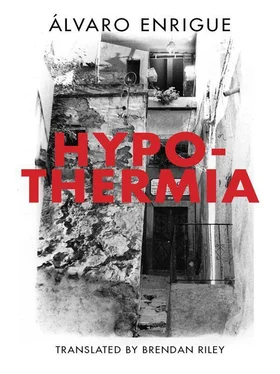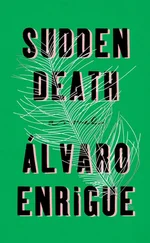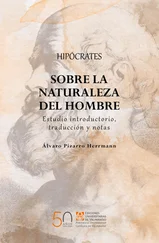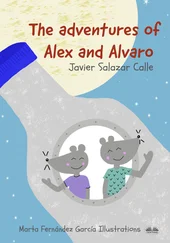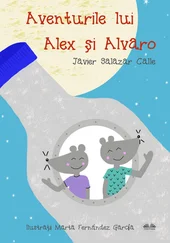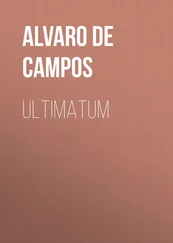A few months after Ishi arrived in San Francisco, the problem arose that, because of museum regulations, he couldn’t live in the guest rooms forever. So they decided to make him a maintenance worker and pay him a salary so that he could live with the staff. To everyone’s surprise, he didn’t understand that it was all about solving the problem of his being the last of something and there being nowhere to keep him. The next day he put on some worker’s coveralls and asked for a bucket.
He used almost no money, except for buying a few things to eat, always simple: honey, corn meal, squash, apples, coffee: he was a very small man and notoriously frugal. He also spent some money taking the trolley car from Golden Gate Park out to see the ocean. He spent all his days off there: the sea is the place where we forgive ourselves for the marbles that slipped through our fingers without our understanding why. The rest of his wages he saved up in the safe at the museum: he kept the money in some boxes for medicine ampules that his doctor gave him, each of which had the exact size, shape, and width to snugly hold ten silver-dollar coins. At the end of his life he became fond of staring at them: he would ask the director to open the safe for him; he would set his boxes of dollars on a table and spend the afternoon looking at them, without ever saying anything or taking the coins out. As if they were something else.
If one is the last of something, his hoardings are not savings, but the balance of an entire universe: we find it there, in Ishi’s untellable story, when the bitten boy turns into a dog, the forest is called “Desert,” and the redheaded girl wears a T-shirt that doesn’t say pendeja.
Sometimes writing is a job: obliquely tracing the path of certain ideas that seem indispensable to us, that we have to set down. But other times it’s a question of conceding what remains, accepting the museum and contemplating the balance while awaiting death, asking forgiveness of the sea for whatever was fucked up. Placing our little boxes on the table and knowing that what came to an end was also the whole universe.
TWO WALTZES TOWARD CIVILIZATION
After this we’ll know how to eat against death, to
devour only dead things, cooking to kill them again.
We’ll know that feeding means dealing with other
bodies, that desire makes us itch, and it only finds
relief in order to get worse, that to love is to devour.
ANTONIO JOSÉ PONTE
I leave the Soul behind; bearing onward,
my pilgrim body, deserted and alone.
QUEVEDO
I
Mr. Hinojosa was waiting for me outside the Lima airport in the sinister black Mercedes Benz the Swiss television producer had rented to pick up the guests for Lard , the highly successful European TV cooking show that had been a minor cable hit in the United States and Canada.
Although I’d heard some of my colleagues express their admiration, and even reverence, for the program, I never watched it because I don’t own a TV. My own gastronomic principles require me to live in total retreat from the world; I don’t believe that one can recreate seventeenth-century Mexican conventual cooking unless one exists in harmony with the ways of life that gave rise to it.
This vision that I’ve nurtured my entire life was by no means easy to make a reality, especially because my restaurant is located in Washington, D.C., the world’s most shameless city, with its ten-foot-wide sidewalks, its streets the size of soccer fields, and its monuments standing as an architectural prelude to national obesity. Nevertheless, it was here that I found a financier to invest in my talents, and I do what I can to recreate those customs and conditions. Both my sesame honey glazed squid, and my chilpachole verde —a spicy green crab soup — have earned me some slight recognition in the pages of the local food section.
The concept behind Lard is that six young, promising chefs compete to eliminate each other by passing a series of trials putting to the test their charisma, manners, and hygiene, as well as their ability to improvise with unusual ingredients. The producers film the whole competition — in itself, quite boring — then jazz it up in editing. Each episode takes place in a different location and is judged by a different celebrity from the world of international gastronomy. The broadcast I was invited to was filmed in Lima because the theme was “Latin American Seafood Cuisine” and Max Terapia was the guest star.
Like all chefs of my generation, I admire and envy Terapia, although I realize that I’m never going to achieve his level of celebrity: when his star began to rise, in the ’60s, Latin American cuisine enjoyed no international cachet, while European cuisine was still trapped in the excessive experimentation that characterized that decade. So, thanks to his creations, as fine and transparent as a razor blade, he scooped up all the prizes and honors without any competition. They called him the master of gastronomy povera , an authentic revolutionary in an eminently bourgeois art. These days he’s based in Miami, where he owns a restaurant catering to an exclusive clientele and which is only open during the cooler months of the year. The place has neither a name nor a front door; you enter by car, through a rolling metal shutter at the rear of the building. Terapia spends the rest of his time as a guest chef at important, high-level culinary events, and at his nineteenth-century house in the center of Lima, which is said to have, and which I confirmed, its original kitchen intact, with a stove that burns charcoal and guano, a cool room, and a hand-powered water pump. A kitchen, it must be said, on account of which I’m almost dying with envy. All my silent partner would pay to have installed in my own place was a bread oven and a wood-fired grill; he told me to buckle down, get busy, and use them to make something wonderful, which I’ve never stopped trying to do since Teresa left me years ago, and I turned my back on the world.
The Swiss, it seems, are naturally mysterious. One day, an enormous glossy envelope arrived at my office. Inside it was a signed letter from some enigmatic Secretariat, informing me that I’d been nominated to compete in Lard . I answered them the very same day, that I was quite honored to receive their invitation but that I had no idea what Lard was — of course I knew, but I wanted to keep them on their toes — and could they do me the favor of explaining things to me. I said that I’d be grateful if they could tell me who’d nominated me so that I could thank them: as far as I know, the only people who eat at my restaurant are Adams Morgan residents and a few Mexican diplomats and professors who tend to be excessively nostalgic — as if the food that I make really has something in common with the country that we were all so happy to escape from.
The same, mysterious Secretariat answered with another extremely pompous letter, along with a promotional flyer for the program, informing me that under no circumstances could they reveal the identity of their advisory committee. In the coming weeks a new panel of connoisseurs would visit my restaurant — they would make the final decision about who would and who wouldn’t take part in Lard .
Again I requested more precise information, to be sure that we would treat the visiting committee well when it showed up. They replied by saying that the anonymity of the visit was sacrosanct. I felt humiliated, and in one of those crazy, headstrong moments that make us lose World Cup games we’ve already won by committing fouls, I demanded that they at least tell me who my competition would be. Another giant envelope from the Secretariat, another refusal.
Читать дальше
